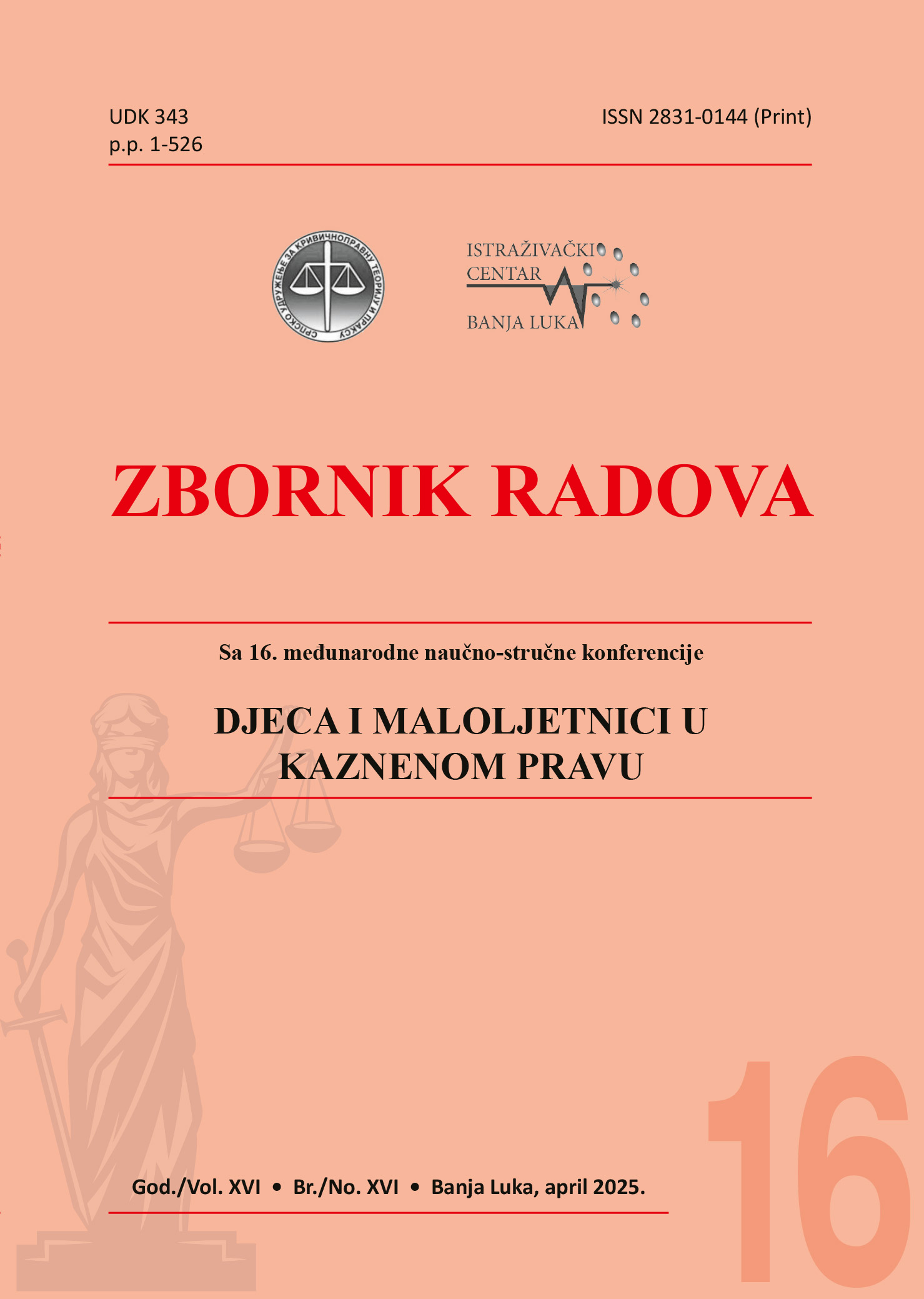SOME ISSUES OF THE STATUS OF JUVENILES IN THE AMERICAN LEGAL SYSTEM
DOI:
https://doi.org/10.7251/CEST1625074SKeywords:
juveniles, children, USA, delinquency, procedureAbstract
The juvenile justice system has undergone significant transformations since its establishment at the end of the 19th century in the USA. This system intervenes in the delinquent behavior of juveniles through the police, court and correctional participation, with the goal of rehabilitation. Juveniles and their guardians may face a variety of consequences, including probation, community service, juvenile court, youth incarceration, and alternative education.
In this paper the authors analyze the historical context and subsequent reforms of the juvenile justice system in the USA to determine whether they remain true to their origins in the legal doctrine of parens patriae. This debate is illustrated by important US Supreme Court cases, adult system waivers, increased use of detention and “evidence-based programs” to suppress further delinquency and prevent violence. The discussion also focuses on the prevalence of systematic racial, ethnic and gender discrimination, which calls into question the usefulness of parens patriae and the overall effectiveness of the juvenile justice system.
Target audience includes state legislators, other state and local policy makers, educators, juvenile justice professionals, and concerned citizens. Empirically based answers are offered to frequently asked questions about the nature of victimization and criminal offenses of juveniles, as well as the response of the justice system. The topics of the chapters are as follows: characteristics of the juvenile population, juvenile justice system and criminal proceedings against juveniles.
